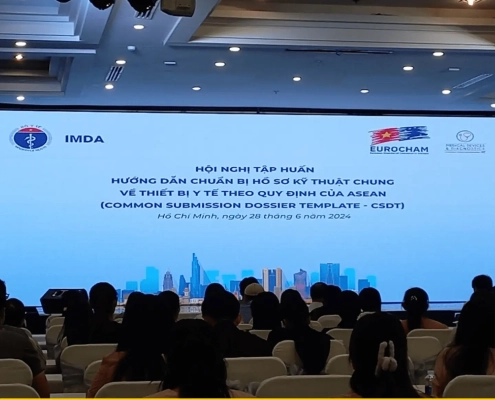Come grow with us in the US in Thailand in China in Korea in the Philippines in Taiwan in Hong Kong
Taiwan FDA’s Medical Device Advertising Requirements
Published on: June 27th, 2022
Taiwan FDA Medical Device Ad/Promo Application Process
Medical device advertising requirements are regulated by the Medical Device Act, under Chapter V: Management of Medical Device Advertisements. The process will require about 3-4 weeks from submission and incurs a fee of NT$10,000 (US$340) for the initial application. Once approved the licenses are valid for 3 years and will require a fee of NT$5,000 (US$170) to renew the license.
Ad/Promo Registration Process in Taiwan
Prior to publishing advertising materials for medical devices in Taiwan, foreign manufacturers will need to work with their license holder to submit an application to the Taiwan FDA. Applications will need to include the advertising materials, the Medical Device Product License (MDPL), the approved Chinese Instructions for Use (IFU), and the Medical Device Applicant’s License.
All medical device advertisements must include the:
Chinese Medical Device Name / Medical Device License Number / License Holder Name / Ad No. XXXXXXXX
Determining How Many Applications Need to Be Submitted
Medical device manufacturers seeking advertising approval from the Taiwan FDA will need to determine the correct quantity of applications as submitting multiple items under 1 application could cause delays. As a general rule, each piece of advertising will require it’s own application, even if the content and messaging is almost identical.
The following mediums will need their own applications:
- Text: Each publication or handout will require a new application.
- Video: Each separate video will require a new application.
- Internet content within the same website address/domain.
- External content will require separate registrations.
For content that includes medical device claims and non-medical device claims; only content related to the medical device should be submitted.
Advertisement Restrictions
Professional-Use Only
Per Article 44, medical devices intended to be used exclusively by medical professionals should only be published in medical publications, media, or other mediums that are only for medical professionals. Therefore, social media posts that are available to all citizens are not permitted for medical devices only intended for use by healthcare professionals.
Additional Restrictions
Medical device advertisements should not be made in the following manners:
- Publicized in the name of others.
- Warrant the effectiveness or performance by making use of books and periodicals, documents, or data.
- Publicized by means of interviews or news reports.
- Publicized by any other improper means.
Non-Compliant Ad/Promos
Once approved, manufacturers and their distributors should not change the content of the advertisements without prior approval. Per Chapter V, Article 41, advertisements found to be non-compliant or could cause harm to the user, the TFDA will require the advertising firm cease usage of the materials or make corrections depending on the situation. Those that fail to make the corrections or remove the advertisements within the allotted timeframe from the market will have their license cancelled.
Registration Process Overview in Taiwan
In Taiwan, medical device registration is overseen by the Taiwan Food and Drug Administration (Taiwan FDA), a division of the Ministry of Health and Welfare. Class I devices will go through an Administrative Review, and Class II, III, and New devices (no predicates) will go through both an Administrative and Technical Review, as well as a Quality System Document (QSD) Review. While fees have increased in Taiwan, the review fees are still relatively affordable compared to other markets in the region.
Once issued, licenses are valid for 5 years. Licenses in Taiwan are transferrable and will need to be completed by both the transferor and the transferee jointly. To learn more about the regulatory process in Taiwan, please click here.
Expedited Market Access For US/EU Approved Devices
Clinical data is only required for Class III IVDs and New products. Class II medical devices with approval in the US or EU can usually use existing documentation in place of the preclinical test, quality control procedure and test reports.
Grow with Us
Asia Actual is available to help navigate the medical device registration requirements and regulatory pathway for medical device and IVDs in Taiwan.
Contact Asia Actual for more information discussing the potential for your medical device or IVD in the Taiwanese market.






